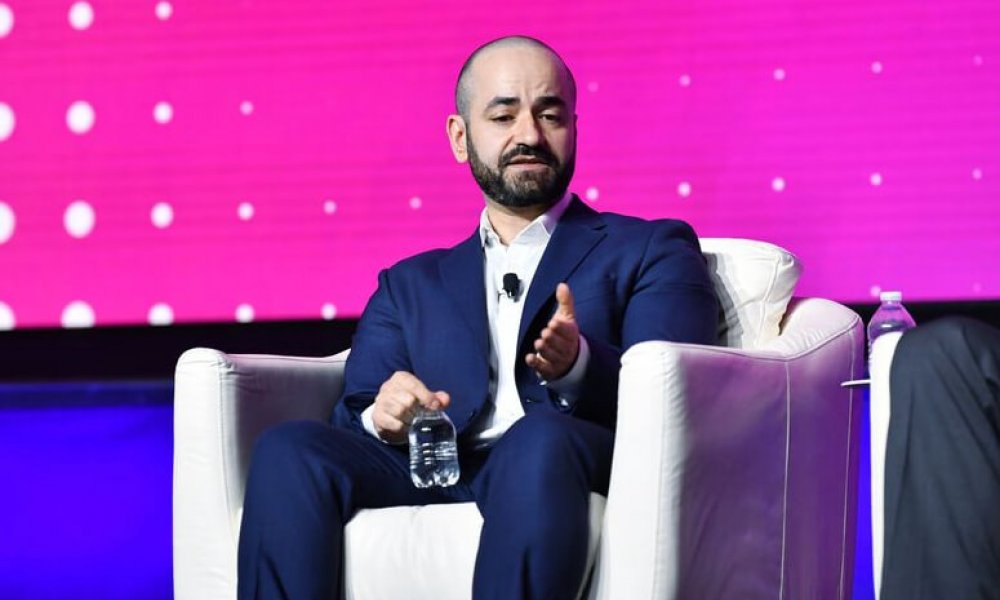ARTICLE AD BOX

- The Ethereum Foundation is currently under scrutiny following Vitalik Buterin’s dismissal of community calls for a leadership shakeup, which has sparked debates about governance and decentralization.
- Charles Hoskinson, the founder of Cardano, criticized Vitalik Buterin for his centralized approach to governance.
The Ethereum Foundation (EF), a non-profit organization that supports the Ethereum ecosystem, is currently facing intense scrutiny following calls for leadership changes from within the Ethereum community.
The debate over the Ethereum Foundation’s leadership gained momentum when a crypto investor, CoinMamba, posted on X, saying, “No, but if we keep the pressure on, she will resign.” This comment referred to Aya Miyaguchi, the EF’s Executive Director since 2018, and prompted a direct response from Vitalik Buterin.
Buterin clarified that leadership decisions within the EF remain under his authority, stating that one of the goals of the ongoing reform is to establish a “proper board.” However, until that happens, he asserted, “It’s me.” He also warned that maintaining pressure on Miyaguchi creates an environment “actively toxic to top talent.”
Buterin’s remarks sparked a backlash from the community, with many questioning the extent of his unilateral control over EF leadership and its alignment with Ethereum’s decentralized ideals.
Charles Hoskinson, the founder of Cardano, has been one of the most vocal critics of Vitalik Buterin’s approach to leadership. Hoskinson questioned whether it is appropriate for Buterin to decide on EF leadership unilaterally, stating: “So V gets to unilaterally decide on the EF leadership team?”
This isn’t Hoskinson’s first critique of Ethereum’s governance structure. In previous remarks, he described Ethereum as resembling a “dictatorship,” where too much power is concentrated in Buterin’s hands. For Hoskinson, decentralized governance must avoid any central figure dominating decision-making.
Key Players and Community Sentiment
Jerome de Tychey, the president of Ethereum France, has emerged as another contender for EF leadership. De Tychey has publicly called for reforms within the EF, emphasizing the need for better communication and streamlined messaging. Additionally, Joseph Lubin, Ethereum co-founder and CEO of Consensys, has also weighed in, suggesting the need for fresh leadership at the EF. Joseph Lubin proposed a co-leadership model suggesting that Danny Ryan and Jerome de Tychey share the responsibilities of leading the organization.
I believe @AyaMiyagotchi deserves an enormous amount of respect and gratitude for what she has done over the years in stabilizing the EF initially and setting it on a healthy trajectory during first a tough period and then through periods of growth. We are now in a very… https://t.co/O4DOwArbng
— Joseph Lubin (@ethereumJoseph) January 18, 2025
Danny Ryan, a respected researcher and developer, has been widely regarded as a potential successor to Aya Miyaguchi. Known for his pivotal role in Ethereum’s transition from proof-of-work (PoW) to proof-of-stake (PoS) during The Merge, Ryan’s expertise and leadership in the consensus layer upgrade have earned him strong support. However, after seven years of significant contributions, Ryan stepped away from the Ethereum ecosystem in 2024, citing health issues as the reason for his departure.
Ethereum’s governance model champions decentralization, giving community stakeholders a key role in decision-making. However, the recent controversy has cast doubt on whether this principle is truly being upheld.
It is worth noting that Cardano’s governance model contrasts with Ethereum’s approach. Cardano relies on elected representatives and an organization called Intersect to ensure transparency and prevent power centralization. This ongoing debate challenges the Ethereum ecosystem to reconcile its commitment to decentralization with the practical challenges of managing a global network.
.png)
 2 hours ago
1
2 hours ago
1








 English (US)
English (US)